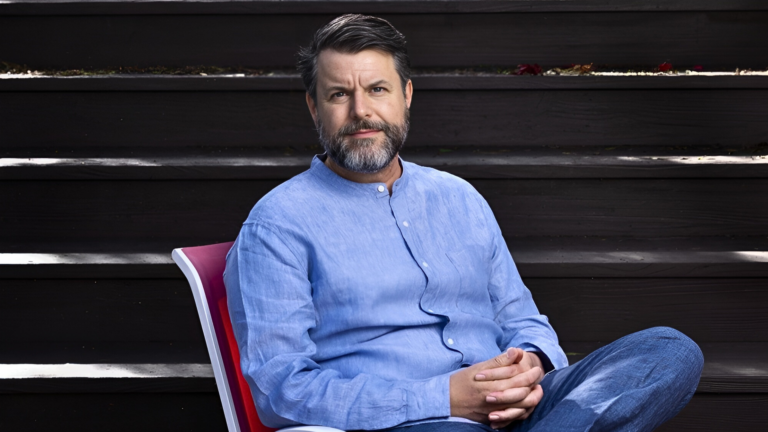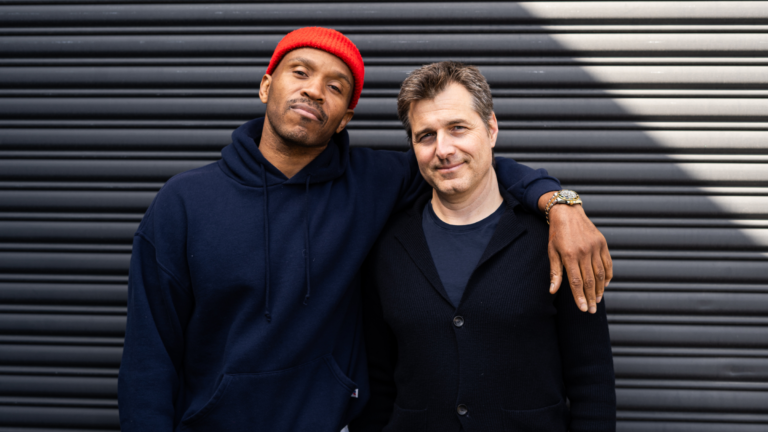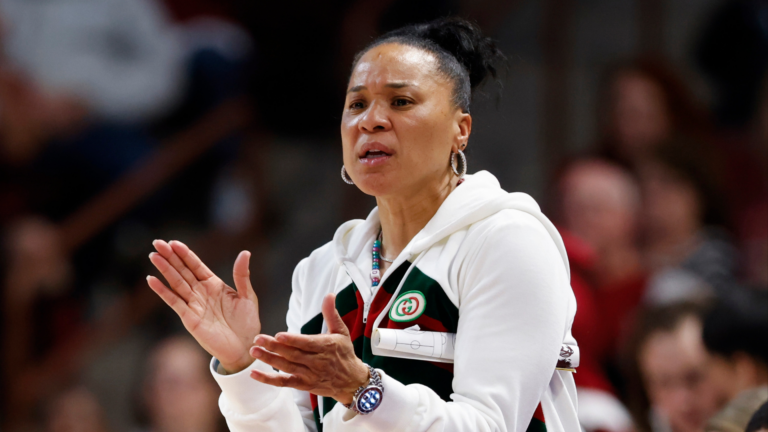This week’s conversation is with leading geopolitical expert, technology futurist, and author, Jamie Metzl—a returning guest to the podcast that we’re so excited to welcome back.
Jamie’s accomplishments are nothing short of extraordinary. He has served on the U.S. National Security Council, State Department, Senate Foreign Relations Committee, the World Health Organization expert advisory committee on human genome editing, and boasts degrees from Brown, Harvard, and Oxford. Jamie is also one of the world’s leading advocates for a full investigation into the origins of the COVID-19 pandemic—a subject he’s covered on most major news platforms.
His bestselling book, Hacking Darwin: Genetic Engineering and the Future of Humanity, is a groundbreaking exploration of the future of our species. Jamie’s profound and provocative inquiry suggests humankind is about to start evolving by new rules as genetic engineering begins to alter the core foundations of our lives—sex, love, war and death.
This conversation proves that Jamie has so much more to offer than his resume and I’m excited for you to experience his sharp mind as we get into strategies for learning, AI, high performance living, the future of humanity, the future of leadership, and so much more.
“If we’re not constantly learning and constantly challenging ourselves and constantly growing, even the strongest foundation can become weak.”
In This Episode:
What’s exciting him about the future
What we’re experiencing is a super convergence of lots of different technologies where every technology inspires and is inspired by every other technology. So that’s just the tools and capabilities and resources that we have is just amazing… With all of these people empowered with all of these new tools and literacy and the cultural heritage of just our common humanity, I’m just so excited about what we’re going to come up with. All the new art and innovation and symphonies and creativity, and connectivity, and collaboration. It’s just an incredible story. Like the story isn’t the technology, it’s what the technology allows us to do individually and together.
What is there to be worried about?
The flip side of that, is that these technologies give individuals, and even some nefarious states or maybe sometimes well-intentioned states, the opportunity to inflict a lot of harm. It’s much easier in general to destroy things than to build things. So the third piece of this is the challenge, the challenge that we have is to use all of these resources and opportunities to build a more resilient world. And that starts on the individual level, the family level, the community level, the national level, and the global level.
The challenge of finding solutions, quickly
Basically, as I see it, the biggest challenge we face in our world today is the mismatch between the nature of our greatest challenges, which are global and common, whether it’s climate change, pandemics, nuclear weapons, lots of other things, and the absence of a sufficient framework for addressing that entire category of challenges. In my mind, until we really think on a global systems level, it’s going to be very difficult for us to do the right thing, even if we pause, which we actually can’t do because of competitive pressures.
The core of humanity
Learning and creativity are, in my view, the most essential human skills. Lots of us, myself included, have been spending time on ChatGPT asking it to do stuff that seemed hard, and it does it really well. It’s not perfect. There’s all kinds of hallucinations, but it’s pretty amazing compared to what we thought was possible last October. It’s clear that AI systems are just becoming smarter and better at a whole lot of things… It’s going to be able to do a lot of pretty incredible things. What we’re going to have to do, as humans have always done, is figure out what’s the core of our humanity.
Learning frameworks
What I do for learning is: One, try to be curiosity driven and broad, because we live, as I mentioned before, in this world of super convergence where there’s so many different knowledge systems coming together. So to understand just how the world is forming, we really have to be broad. The world of technology, the world of nature, arts, science, philosophy, it’s kind of all coming together. And then the second thing that I really love to do is read. I think people feel like, “Oh, the world is moving so fast. It’s hard to read longer stuff.” It’s such an intimate connection in my view with thinkers and writers.
Discernment and filtering
We all have to decide, “Well, what are the filters? What are the kinds of sources that we’re open to?” Because right now, if you just say, “All right, I’m interested in AI, bring me everything on AI,” you’re just going to get bombarded and there’s going to be a whole lot of useless crap. But while narrowing it down, it’s also important to not get stuck in some kind of bubble, even with the most brilliant people you can find who in general agree with you. It’s important to filter out stuff that you don’t value, but make sure you filter in or keep inside of the filter people and ideas that are different from yours because there are so many pressures on all of us to just get stuck in these cul-de-sacs… if we just say, “Well, I’m open to everything,” it’s going to be overwhelming and you’re going to drown out the good stuff, but buy the good stuff. I think everyone needs to recognize that the good stuff includes good stuff with viewpoints different than yours.
Dealing with doubters and staying true to yourself
In the early days of COVID-19, when I was just looking at the data as I saw it, and I was looking at the media reports and even papers in, or letters in scientific journals, and there was just a mismatch between the story I was seeing from the data and what I was reading in the newspapers, and I just started speaking out. But at that time, I mean, it turned out there were a handful of us around the world who had seen the same thing, but we didn’t know each other at that time. And I had friends saying, “What are you doing? You’re risking your entire reputation. You’re supporting Trump in an election year. What’s wrong with you?” And for sure, I think any person on any one of these quests that’s why it’s hard; you have to face these things and you have to doubt yourself. Sometimes those doubts can be pretty powerful. And you have to sit with them and not just bat them away, but look at them, understand them, and then figure out how you’re going to get around it and keep pushing. And it’s hard, but it’s also probably the most rewarding thing for myself and many people in the world.
Doubling down on human skills
One of the most important things will be to have your own philosophy about what humans will do best in general and in whatever field you are in, what will be the most essential role of humans in that? And to really double down on developing those skills. It’s going to be a mix up because there are certain skills that we value enormously now that are going to be devalued later.
Constant learning
It’s all about creativity and learning and letting yourself be that human. It’s so easy for us to get caught up in the things that we’re doing day to day, and we have to because those things are really important. But because the world is changing so rapidly and because our brains aren’t set up on their own for adapting to that kind of change, we really have to, in some ways force ourselves to really think and learn. I know people who are just very, very smart, extremely high functioning people who aren’t reading. Somebody who I know who’s an incredible journalist and said she hasn’t read a book. I think she’s said 17 years since her child was born and I totally understand it. Even if it’s a haiku. I think really kind of thinking differently, reading differently, experiencing different kinds of inputs, certainly arts and culture. It’s actually a really practical thing.
What is success? And the key to it?
Success is achieving something that is meaningful for you and trying your best to get wherever you would like to go. And recognizing that your success isn’t something that somebody else can map onto you. It’s you striving for realizing your dreams as an individual and as part of whatever bigger thing you are or want to be part of… The key to success is knowing where you’d like to go and putting your heart and soul into getting there. Even recognizing you may not get exactly to where you had intended to go.
His definition of artificial intelligence
A tool to be used by humans that will redefine in many ways what it means to be alive and to be human.


